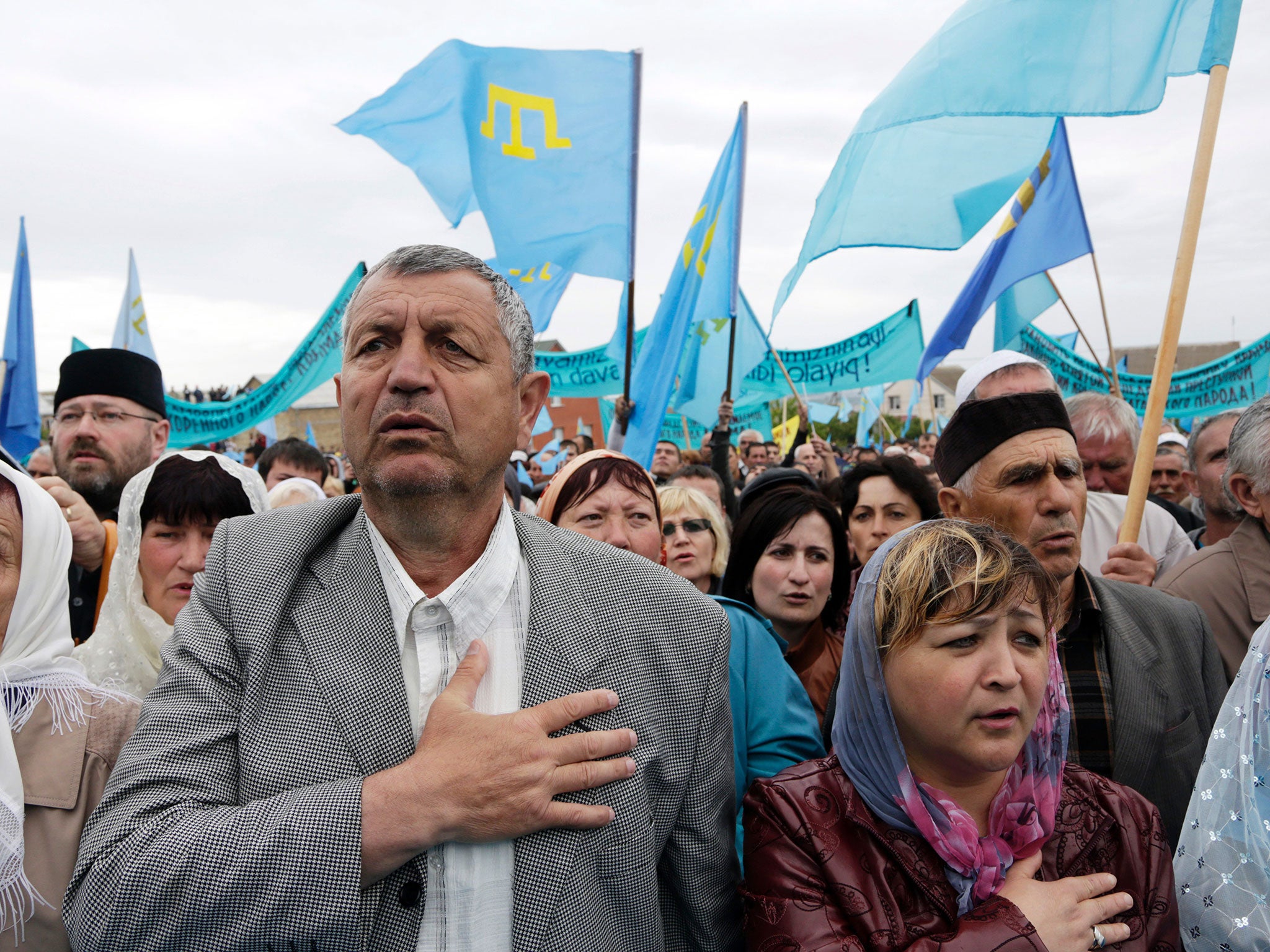UN accuses Russia of multiple human rights abuses in Crimea
Draft resolution condemns Russia's 'temporary occupation' of Crimea

Your support helps us to tell the story
From reproductive rights to climate change to Big Tech, The Independent is on the ground when the story is developing. Whether it's investigating the financials of Elon Musk's pro-Trump PAC or producing our latest documentary, 'The A Word', which shines a light on the American women fighting for reproductive rights, we know how important it is to parse out the facts from the messaging.
At such a critical moment in US history, we need reporters on the ground. Your donation allows us to keep sending journalists to speak to both sides of the story.
The Independent is trusted by Americans across the entire political spectrum. And unlike many other quality news outlets, we choose not to lock Americans out of our reporting and analysis with paywalls. We believe quality journalism should be available to everyone, paid for by those who can afford it.
Your support makes all the difference.The UN has condemned Russia's "temporary occupation" of Crimea and accused it of multiple human rights abuses in the region.
The draft resolution condemns abuses and discrimination "against the residents of the temporarily occupied Crimea, including Crimean Tartars," a Turkic ethnic group formed in the Crimaen Peninsula in the 13th to 17th centuries.
Russia annexed Crimea in March 2014 following the ouster of Ukraine's former Moscow-friendly president after months of protests. The move led to crippling Western sanctions and the eruption of a pro-Russia insurgency in eastern Ukraine the following month.
Although Russia urged the General Assembly's human rights committee to vote against the resolution, it was approved by a vote of 73-23, with 76 abstentions. The UK and US are among the countries who voted for the resolution, while Russia, Syria, Iran and China opposed it.
The draft resolution urges Russia to immediately end all abuses against Crimean residents, including "arbitrary detentions, torture and other cruel, inhumane or degrading treatment, and to revoke all discriminatory legislation".
It calls on Russia to release Ukrainians who were illegally detained, and to allow cultural and religious institutions to reopen.
It also urges Russia to revoke the Supreme Court's 29 September decision declaring the Mejlis of the Crimean Tartar People, the self-governing body of the Crimean Tartars, a banned extremist organisation.

Before the vote, Ukraine's Deputy Foreign Minister Sergiy Kyslytsya told the committee the resolution's main goal "is to ensure that Russia fully complies with its obligations as an occupying power."
"After Russia occupied Crimea, the human rights situation has deteriorated sharply with extra judicial killings, intimidation, arbitrary detentions, torture and abuses to the freedom of expression," Mr Kyslytsya said.
Anatoly Viktorov, who heads the Russian Foreign Ministry department dealing with human rights, called the resolution "politically motivated." He said the people of Crimea "chose to vote in a historic referendum to reunite with Russia."
"The draft is one-sided," he added. "It completely ignores the negative impact that the actions of Ukrainian authorities have had on the residents of Crimea."
Mr Viktorov said "Crimean residents have all the means of judicial protection that are accorded to Russian citizens" and the same human rights.
Rights groups have raised concerns over freedom of speech and association in Crimea.
Martin Shearman, ambassador of the UK mission to the UN, said the UK shares "the serious concerns" the resolution raises.
"The deterioration in human rights on the Crimean Peninsula since the start of the Russian Federation’s illegal annexation has been well documented by the Office of the UN High Commissioner for Human Rights (OHCHR)," he said.
"The OHCHR has detailed the arrests, ill-treatment, torture and intimidation perpetrated against political opponents and minorities, as well as the denial of basic human rights to those who do not accept the forced imposition of Russian legislation and citizenship on the Peninsula."
He added: "The United Kingdom remains deeply concerned at the persecution of the Crimea Tatar minority, including the banning of the Tatar Mejlis and at the use of anti-extremist legislation to silence dissenting views."
On Wednesday, Russian President Vladimir Putin signed an order to withdraw his country's signature from the International Criminal Court (ICC), which was investigating the Ukraine conflict and Russian air strikes in Syria.
Join our commenting forum
Join thought-provoking conversations, follow other Independent readers and see their replies
Comments